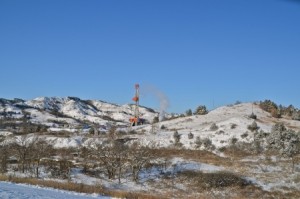Tuesday, June 23, 2015
 In an economy whereby all facets are interconnected- or a network
economy- inefficiency is dragging down performance markers, particularly oil prices. This means in several sectors of the economy, it takes more
resources to produce a given output. And with this inefficiency come a drop in prices of many commodities for good reason.
In an economy whereby all facets are interconnected- or a network
economy- inefficiency is dragging down performance markers, particularly oil prices. This means in several sectors of the economy, it takes more
resources to produce a given output. And with this inefficiency come a drop in prices of many commodities for good reason.
This reasoning stems from the basic logic fewer resources are available to the rest of the economy as other industries inefficiently consume more. For example, stagnant or lower wages force consumer to spend less thanks to lacking resources, or funds. This drives down the demand while the supply remains the same. Thus we experience falling prices.
Much of the easily extractable oil is gone. This doesn’t mean there isn’t plenty of oil left, it’s just more difficult to tap. But using the means to drill this hard-to-reach oil such as fracking or Deep Ocean drilling is much more expensive to access. This price drive is thanks in most part to labor, parts such as piping and technology, which result in what investors know as ‘diminished returns.’
So with the inefficiency of oil-drilling techniques and oil companies experiencing ever-increasing diminished returns, mostly thanks to the costly techniques used to access difficult-to-reach oil reserves, the cost of oil is becoming increasingly costly. But with demand staying the same or falling, thanks to low wage, low oil prices may never rebound.
In addition to the suffering market demand, clean fuel technologies are increasingly more available to consumers. Solar and natural gas are quickly replacing petroleum options as not only cheaper, but much more eco-friendly. The only hope for driving demand in the oil industry is increased wages. But with a more eco-minded public, even increased spending power may not save the industry.
TAGGED AS:
- commodity
- economic climate
- economy
- gas prices
- oil industry
- supply and demand
